Untill early summer of 2010 I didnt even know medieval armies had any form of identification other than banners, so finding out about livery badges was quite interesting.
Unfortunatly there seems to be very little about them on the internet, I was wondering if there are any survivng livery badges or any livery badges depicted in medieval artwork?
I've heard that they were worn on the left shoulder or left chest, is this true? and if so were they worn anywhere else?
During the Wars of the Roses did soldiers wear for instance a white rose or a red rose badge to signify their allegience to a faction,or did they just wear their own lords badge?
I've also heard of "livery collars" what exactly are these?
I'm particularly interested in WotR era/1470's livery badges, any info/pics/links would be much appreciated. :)
Great questions. I'm curious about this subject, too. I once had a kit created on such things but it wasn't based on any real research other than historical art. Somebody please fill in the details for us. :)
I've never heard of such a thing, and I would love to know more too! This is one of those things I would have dismissed had I heard it anywhere else!
Here is a Percy badge or brooch of some kind and I can't place it time, nor even find size specifications. It had come from an Australian SCA heraldry page. As it is the only one I have found, I would think it likely a family piece. Or at least less than widely distributed to mass troop movement. There is a poem/ballad out there concerning the battle of Shrewsbury where the blue lion of Percy is mentioned. Personal arms apparently worn but the troops rallying to banners.
Some of the classic (and newer) Japanese films have everyone (at least many) in pitched battles flying a flag attached to them. I would not be at all surprised to find the more steadily employed private armies of the west wearing something to distinguish/identify them.
Signets and seals more or less common, in looking about for more personal id. I honestly don't have an early date of mandatory and sponsored uniforms with ID until past the 100 yrs war but I would believe it if well referenced.
Cheers
GC
PS Livery collars come up easily in simple searches but I don't think you are looking for mass identification of troops but rather individuals and family.. RAnk and government, stuff like that.
 Attachment: 20.81 KB
Attachment: 20.81 KB
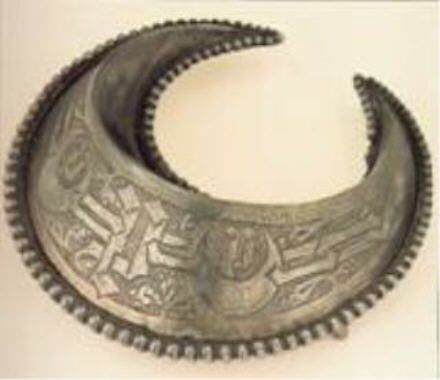
 Attachment: 9.54 KB
Attachment: 9.54 KB
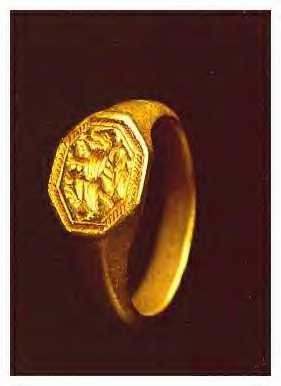
 Attachment: 22.42 KB
Attachment: 22.42 KB
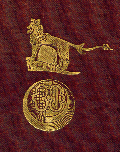
Some of the classic (and newer) Japanese films have everyone (at least many) in pitched battles flying a flag attached to them. I would not be at all surprised to find the more steadily employed private armies of the west wearing something to distinguish/identify them.
Signets and seals more or less common, in looking about for more personal id. I honestly don't have an early date of mandatory and sponsored uniforms with ID until past the 100 yrs war but I would believe it if well referenced.
Cheers
GC
PS Livery collars come up easily in simple searches but I don't think you are looking for mass identification of troops but rather individuals and family.. RAnk and government, stuff like that.



Those are some interesting images glen, thanks for posting them.
From what I can tell from the little i've found out about them, livery badges were slik with sometimes silver/gold thread woven into them, depicting the symbol of the soldiers lord. Apparently this symbol was not always part of their heraldry, and I see it mentioned that they were sometimes changed to fit the lords personal tastes (the earl of warwick, "The Kingmaker" apparently changed his 3-4 times). And they were worn with or perhaps instead (Not sure on that one) of the livery jacket or "livery cote". Which was a baggy, loose fitting garment (to me it looks like a short poncho with the sides closed under the arms, and only one closure on the front, down by the waist) which had the same symbol as the livery badge on the back, and sometimes on the left chest aswell.
alot of this I got from pictures in one of my books illustrated by graham turner (mainly the part about livery jackets), which dont really describe the badges or jackets, so this is just my interpretation of it.
From what I can tell from the little i've found out about them, livery badges were slik with sometimes silver/gold thread woven into them, depicting the symbol of the soldiers lord. Apparently this symbol was not always part of their heraldry, and I see it mentioned that they were sometimes changed to fit the lords personal tastes (the earl of warwick, "The Kingmaker" apparently changed his 3-4 times). And they were worn with or perhaps instead (Not sure on that one) of the livery jacket or "livery cote". Which was a baggy, loose fitting garment (to me it looks like a short poncho with the sides closed under the arms, and only one closure on the front, down by the waist) which had the same symbol as the livery badge on the back, and sometimes on the left chest aswell.
alot of this I got from pictures in one of my books illustrated by graham turner (mainly the part about livery jackets), which dont really describe the badges or jackets, so this is just my interpretation of it.
Robert,
Try historicenterprises.com
They carry some livery badges which you might be interested in.
They are also great to deal with.
Cheers,
P.C.
Try historicenterprises.com
They carry some livery badges which you might be interested in.
They are also great to deal with.
Cheers,
P.C.
With the Percy symbols, the crescent was a badge rather than a heraldic icon. So if there are livery badges referenced, textile en mass would make sense. If I recall correctly, one royal genealogic roll showed more badges of families than arms simply for brevity and familiarity. That, rather than try to show entire arms. Take a look at the Edward IV roll here
http://www.freelibrary.org/medieval/index.htm
Here are the badges from that described
http://www.freelibrary.org/medieval/badge.htm
The Percy badge continues to surface and use continued in later centuries. I don't have the later 19h century architectural pictures but a couple of earlier up through to the 18th and early 19th century. The badge was in use shortly after the first (Princes) crusades. The silver crescent (iirc) is also mentioned in the Shrewsbury muse/prose.
By later years, a local yeoman militia in England was quite routine and we see local.familial ID all the time.
Old timers disease but there is another word I am looking for. Ahhh Amorial..yup that's it. Badges regarded as amorial (for all arms, mebbe)
Cheers
GC
Harry Percy in modern rendition of arms worn (note no crescent except the sword pommel)
 Attachment: 50.91 KB
Attachment: 50.91 KB
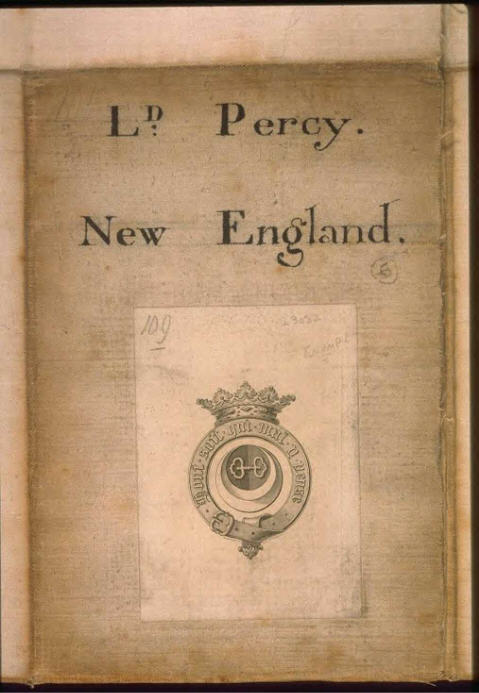
 Attachment: 73.86 KB
Attachment: 73.86 KB
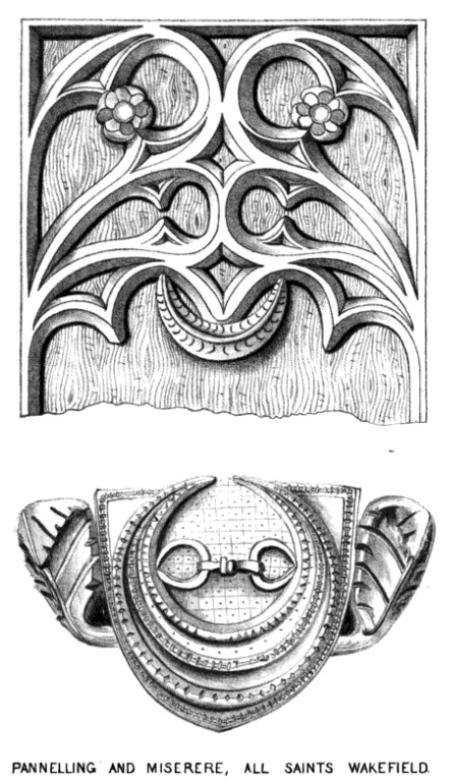
 Attachment: 19.5 KB
Attachment: 19.5 KB
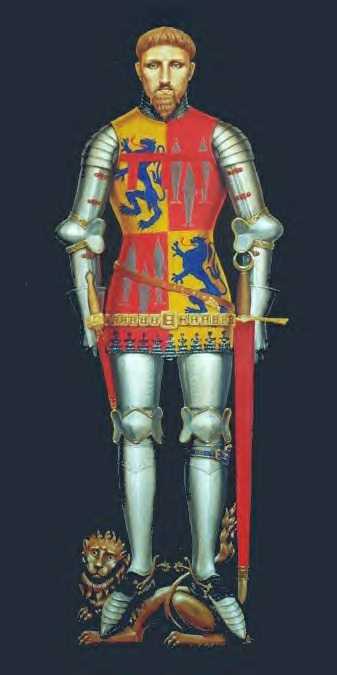
http://www.freelibrary.org/medieval/index.htm
Here are the badges from that described
http://www.freelibrary.org/medieval/badge.htm
The Percy badge continues to surface and use continued in later centuries. I don't have the later 19h century architectural pictures but a couple of earlier up through to the 18th and early 19th century. The badge was in use shortly after the first (Princes) crusades. The silver crescent (iirc) is also mentioned in the Shrewsbury muse/prose.
By later years, a local yeoman militia in England was quite routine and we see local.familial ID all the time.
Old timers disease but there is another word I am looking for. Ahhh Amorial..yup that's it. Badges regarded as amorial (for all arms, mebbe)
Cheers
GC
Harry Percy in modern rendition of arms worn (note no crescent except the sword pommel)



red rose vs white rose is not period to WOTR. it is a Shakespeare thing. there was a groups that had a white rose for it's livery though.
each minor lord had a liver. colors and badge.
http://www.replications.com/greys/Standards/C...Livery.htm
each minor lord had a liver. colors and badge.
http://www.replications.com/greys/Standards/C...Livery.htm
Thanks for telling me about historic enterprises livery badges peter, I think I saw them before but couldn't remember what site they were on...I'm probably going to get the "whyte Boar" badge and maybe the yorkist rose badge aswell.
Thanks for the links glen, that explained the white lions I kept seeing on yorkist stuff. :)
I thought that livery collars were more of a family/noble thing too, but then I was reading an article on the Richard the III's society site and read this...
" After an uncomfortable but successful reunion with brothers Edward and Richard, Clarence's men hurriedly covered up their Lancastrian "SS" collars. Some might well say that was a very appropriate symbol for the treacherous, ruthless, and murderous Duke with hindsight. It appears that their hasty needlework was not of a very high standard, for their poorly concealed collars were noticed and remarked upon later. "
This makes it sound like the collars were worn by all clarence's men, whether family or not. It also makes it sound as if they were wearing them over jacks or something since they covered them up with needlework...unless they were all wearing civilian clothes at the time, but that doesn't seem right seeing as they were on campaign.
Maybe the guy has his facts wrong, but anyways heres the article: http://www.r3.org/bookcase/texts/reboul_barnet.html
An interesting read by the way.
Edit @ chuck: Thanks for telling me that chuck, I remember hearing about that awhile back but apparently I forgot lol. Thanks for reminding me.
Thanks for the links glen, that explained the white lions I kept seeing on yorkist stuff. :)
I thought that livery collars were more of a family/noble thing too, but then I was reading an article on the Richard the III's society site and read this...
" After an uncomfortable but successful reunion with brothers Edward and Richard, Clarence's men hurriedly covered up their Lancastrian "SS" collars. Some might well say that was a very appropriate symbol for the treacherous, ruthless, and murderous Duke with hindsight. It appears that their hasty needlework was not of a very high standard, for their poorly concealed collars were noticed and remarked upon later. "
This makes it sound like the collars were worn by all clarence's men, whether family or not. It also makes it sound as if they were wearing them over jacks or something since they covered them up with needlework...unless they were all wearing civilian clothes at the time, but that doesn't seem right seeing as they were on campaign.
Maybe the guy has his facts wrong, but anyways heres the article: http://www.r3.org/bookcase/texts/reboul_barnet.html
An interesting read by the way.
Edit @ chuck: Thanks for telling me that chuck, I remember hearing about that awhile back but apparently I forgot lol. Thanks for reminding me.
The Wars of the Roses is the height of the livery and maintenance system in England. Men would sign on with noble house, wear their livery and maintain them in their quarrels, in return for wages, land and other benefits. It effect it gives the great houses standing armies at their disposal.
The Osprey Wars of the Roses book has a selection of livery badges from some of the prime players in the wars. It seems that some noblemen adopted a key charge of their heraldry to be their badge, while others picked something completely different. Hoods and sashes were used as well as the livery coat.
The Osprey Wars of the Roses book has a selection of livery badges from some of the prime players in the wars. It seems that some noblemen adopted a key charge of their heraldry to be their badge, while others picked something completely different. Hoods and sashes were used as well as the livery coat.
The word 'livery' derives from the French Livrer, meaning 'to hand over / deliver'.
As Michael said, effectively the nobility had their own standing armies; and they wanted everyone to know who's army it was! To that end they would hand out equipment to identify their men, both on the battlefield AND in civilian life. It was important to both the lord and his men that their allegiance was displayed. The phrase "Yeah? You and whose army?!" had real meaning in those days!
In many cases badges were issued, normally bearing the heraldic symbol of the lord. For example, the Earl of Warwick used a bear-and-stick symbol. Often the badges were embroidered cloth, but for higher ranking lieutenants they could be pewter or silver.
The lord may also issue clothing in their colours; although more often than not the records show that cloth was issued, meaning the men could have whatever garment(s) they saw fit made.
EDIT:
Lionheart Replicas have a few pewter livery badges available. Just scroll through the pages to find them:
http://www.lionheartreplicas.co.uk/shop/index.php?categoryID=85
As Michael said, effectively the nobility had their own standing armies; and they wanted everyone to know who's army it was! To that end they would hand out equipment to identify their men, both on the battlefield AND in civilian life. It was important to both the lord and his men that their allegiance was displayed. The phrase "Yeah? You and whose army?!" had real meaning in those days!
In many cases badges were issued, normally bearing the heraldic symbol of the lord. For example, the Earl of Warwick used a bear-and-stick symbol. Often the badges were embroidered cloth, but for higher ranking lieutenants they could be pewter or silver.
The lord may also issue clothing in their colours; although more often than not the records show that cloth was issued, meaning the men could have whatever garment(s) they saw fit made.
EDIT:
Lionheart Replicas have a few pewter livery badges available. Just scroll through the pages to find them:
http://www.lionheartreplicas.co.uk/shop/index.php?categoryID=85
Last edited by Glennan Carnie on Sun 12 Dec, 2010 8:47 am; edited 3 times in total
The subject of livery badges came up several times when I was readying about 13th century tournament. Because melee was fairly chaotic, and teams were formed of groups who were sometimes allies, but opponents at other times a method of team identification was needed. (Somewhat like today's "shirts versus skins" or "red shirt" method of forming practice teams...) The decorations were vaguely described as a variety of things including scarfs, sashes to be worn on the shoulder, metallic emblems, and even decorations to go on horse barding. In the case of planned tournaments, these were sometimes issued in hundreds (Ulrich Von Lichtenstein, and a couple of others are known to have done so from inventories. Some are known from the behourd's or tournament with baleen weapons.) I don't know of any cloth examples that survive. It is mostly the small metal pendants that remain.
Thanks for all the info. :)
And glennan thanks for the lionheart replicas link, some cool pewter badges there. :)
And glennan thanks for the lionheart replicas link, some cool pewter badges there. :)
Page 1 of 1
You cannot post new topics in this forumYou cannot reply to topics in this forum
You cannot edit your posts in this forum
You cannot delete your posts in this forum
You cannot vote in polls in this forum
You cannot attach files in this forum
You can download files in this forum
All contents © Copyright 2003-2006 myArmoury.com — All rights reserved
Discussion forums powered by phpBB © The phpBB Group
Switch to the Full-featured Version of the forum
Discussion forums powered by phpBB © The phpBB Group
Switch to the Full-featured Version of the forum